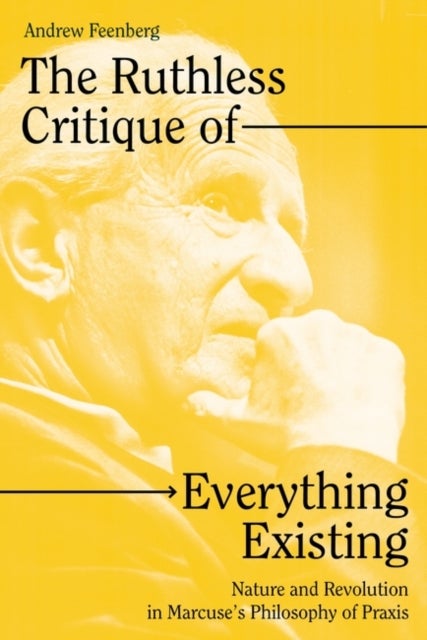
The Ruthless Critique of Everything Existing av Andrew Feenberg
199,-
<b>How Marcuse helps us understand the ecological crisis of the 21st century</b><br><br>For several years after 1968, Herbert Marcuse was one of the most famous philosophers in the world. He became the face of Frankfurt School Critical Theory for a generation in turmoil. His fame rested on two remarkable books, <i>Eros and Civilization </i>and <i>One-Dimensional Man. </i>These two books represent the utopian hopes and dystopian fears of the time.<br><br>In the 1960s and 70s, young people seeking a theoretical basis for their revolution found it in his work. Marcuse not only supported their struggles against imperialism and race and gender discrimination, he foresaw the far-reaching implications of the destruction of the natural environment. Marcuse’s Marxism was influenced by Husserl and Heidegger, Hegel and Freud.<br><br>These eclectic sources grounded an original critique of advanced capitalism focused on the social construction of subjectivity and technology. Marcuse contraste








